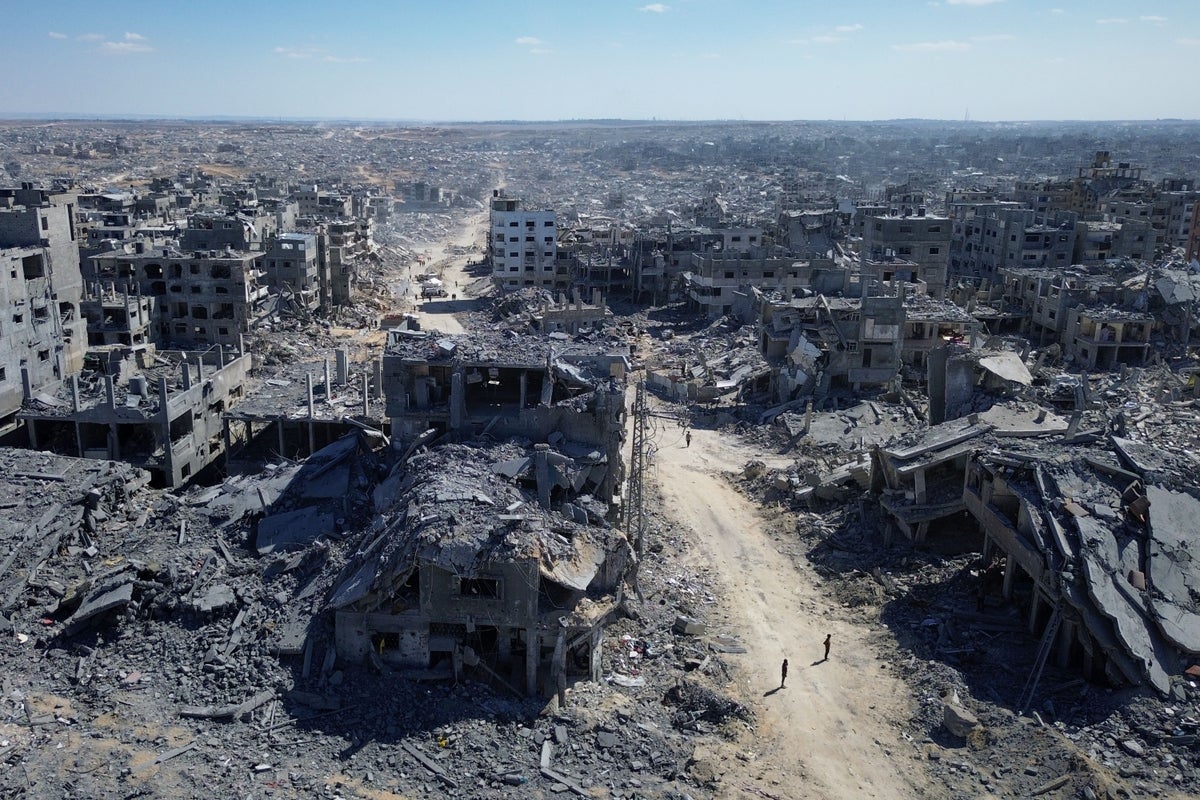
The fragile Gaza ceasefire is on the brink of collapse, as Hamas accuses Israel of killing at least 24 people in the past six days.
The families of Israeli hostages have meanwhile called on the ceaseifre to be terminated if Hamas does not release the remaining bodies of dead captives.
The tensions have mounted less than a week after the ceasefire, which has been marked by accusations of breaches from both sides, came into effect on Friday. The deal initially saw aid deliveries ramped up until Wednesday, when Israel said it would halve the amount of daily aid from 600 trucks to 300 in response to Hamas’ failure to release the remaining hostages.
On Thursday, Israel said it was preparing to reopen Gaza’s Rafah crossing with Egypt to let Palestinians in and out, but said aid deliveries would not yet be permitted. Israel has set no date for the crossing to be opened.
Addressing the alleged killing of dozens Palestinians since the ceasefire came into place, a senior Hamas official told Reuters: “The occupying state is working day and night to undermine the agreement through its violations on the ground.”
The Israeli military has not responded to the statement by Hamas, but in recent days it has accused Palestinians of ignoring warnings not to approach Israeli positions, prompting troops to open fire to “remove the threat”.
Under the terms of the US-backed agreement, Hamas has released all of the 20 living hostages and captives and nine of 28 bodies.
The remaining 19, Hamas says, will be harder to reach. With Gaza reduced to rubble by Israel’s military campaign, the admission of heavy machinery and excavating equipment into the Israel-blockaded enclave would be needed to locate the remaining hostages.
The Israeli government and families of the hostages have said the failure to return all the bodies is a breach of the ceasefire terms.
“The agreement cannot continue to be implemented without Hamas returning all the hostages,” the Hostage Families Forum Headquarters said in a statement. “Any decision that weakens pressure on Hamas or allows the agreement to continue while hostages remain unreturned would be a grave moral and leadership failure.”
It marks a major departure in the stance of hostage families, who, while there were still living hostages in Gaza, had campaigned vigorously for a ceasefire deal.
Israeli government spokesperson Shosh Bedrosian told reporters on Thursday that Israel remained committed to the agreement and continued to uphold its obligations, demanding Hamas return the bodies of the 19 deceased hostages it had not handed over.
Later on Thursday, the Gaza health ministry said Israel had released 30 bodies of Palestinians killed during the conflict, taking the total of bodies it has received since Monday to 120.
Israel’s military aid agency Cogat said coordination was under way with Egypt to decide a date for reopening the Rafah crossing for movement of people after completing the necessary preparations.
Cogat said the Rafah crossing would not open for aid as this was not stipulated by the truce deal at any stage. All humanitarian goods bound for Gaza would pass through Israeli-controlled Kerem Shalom after undergoing security inspections.
